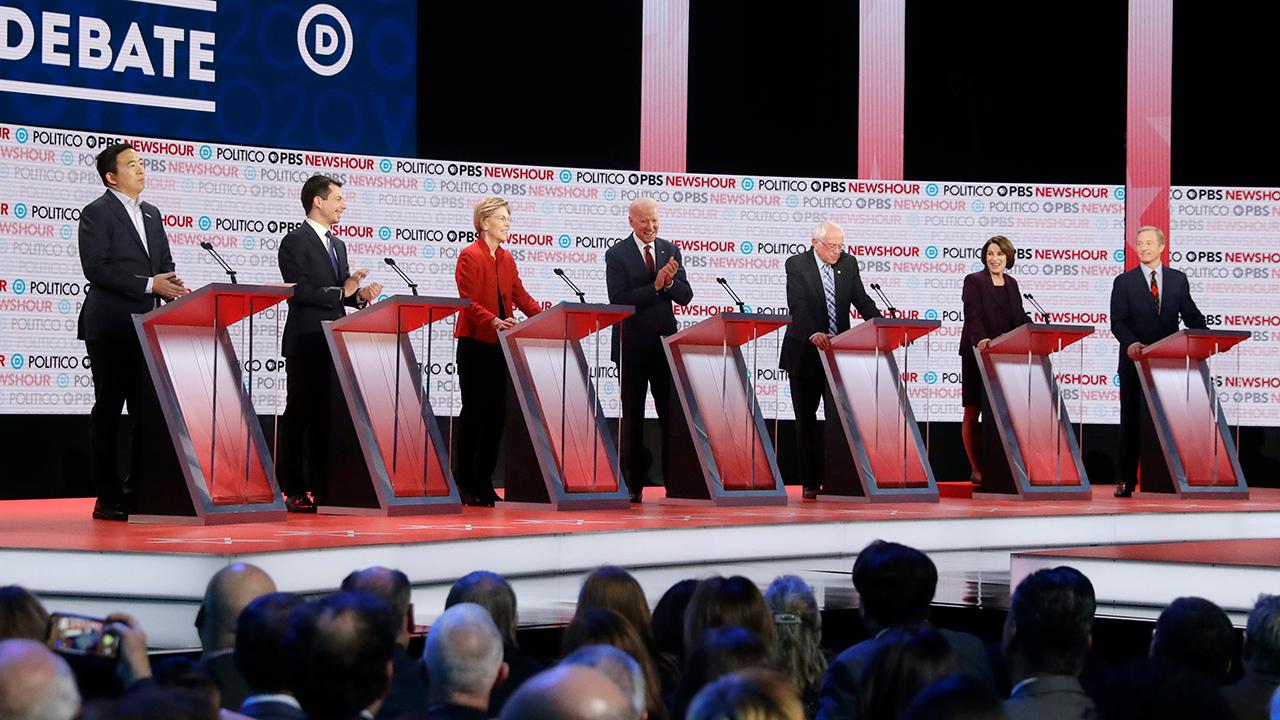What is a brokered convention? Will it happen? Here’s what you need to know

A few minutes every morning is all you need.
Stay up to date on the world's Headlines and Human Stories. It's fun, it's factual, it's fluff-free.
Democrats who once said a brokered convention was unlikely now see it as a distinct possibility.
Although the primary season is well underway, the Democratic field is still crowded with candidates and there are no signs that anyone is about to suspend their campaign as Super Tuesday approaches. Some Democrats worry that no contender will win a majority of delegates before the convention in July.
What do Democrats say?
Democratic strategist Eddie Vale, who once said he was “extremely skeptical" of a brokered convention, now thinks “it’s definitely seeming like it could happen." Adam Parkhomenko, a member of Hilary Clinton’s 2016 campaign team agreed, saying, “this is currently heading for a convention fight at this rate."
Vale told The Hill that a brokered convention now seems likely because the Democratic Party requires a proportional allocation of delegates to candidates who get at least 15 percent of votes in a primary or caucus.
While some reports say this makes the race fairer, other analysts believe it complicates the nominating process and makes it harder for anyone to secure enough delegates to win the nomination.
For Parkhomenko, given that there are still eight candidates in the race, five of whom have already won some number of delegates, the Democrats may be heading for a brokered convention “unless all of a sudden a number of candidates drop out."
The campaigns are focusing on the upcoming primaries. In the contests that will take place on Super Tuesday and through the rest of March, over 50 percent of all delegates are up for grabs. But at the same time, the campaigns are preparing themselves for a brokered convention.
Politico reports that Michael Bloomberg, the former mayor of New York who has yet to feature in a Democratic primary, is lobbying supporters of his moderate rivals to back his candidacy should a brokered convention take place.
But not every member of the Democratic party thinks that a contested convention is imminent, or that it would be a disaster. Former Senate Majority Leader Harry Reid told reporters that while a brokered convention was possible, it wouldn’t be “the end of the world. It just slows the process down."
The Democratic candidates themselves seem split about how to proceed if the race’s frontrunner fails to win the necessary number of delegates following the primaries.
In a debate before the Nevada caucuses, NBC’s Chuck Todd asked the candidates if the person with the most delegates heading into the convention should win the nomination. Only Vermont Senator Bernie Sanders, who established himself as the clear frontrunner after winning Nevada, said they should.
“I think the will of the people should prevail. Yes, the person with the most votes should become the nominee," he said.
What is a brokered convention?
A brokered convention, also known as a contested convention, occurs when a candidate fails to get more than half the delegates in the convention’s first round of voting.
If no candidate has a majority, there will be a second round of voting. In the second round, party officials and superdelegates can choose a nominee.
Brokered conventions are rare in the modern era. There hasn’t been one in either party since the 1952 Democratic convention, and primary election reforms passed in the 1960s have made the chances of one happening again unlikely.
The Republican Party came close to a brokered convention in 1976. Ronald Reagan challenged then-President Gerald Ford for the presidential nomination in a vote known as the Mississippi Challenge. Reagan tried to convince delegates to vote for him instead of Ford but was unsuccessful.
In the lead up to the 1980 Democratic convention, Senator Ted Kennedy made moves to lure delegates away from President Jimmy Carter. Kennedy withdrew from the race after failing to convince enough delegates to join him.
[article_ad]




Comments ()